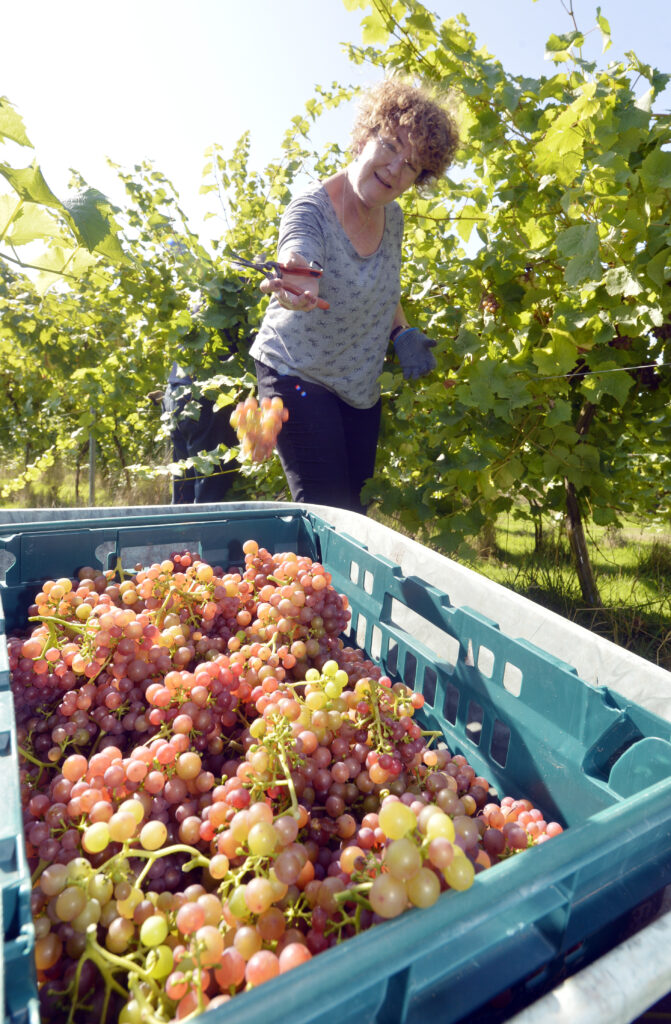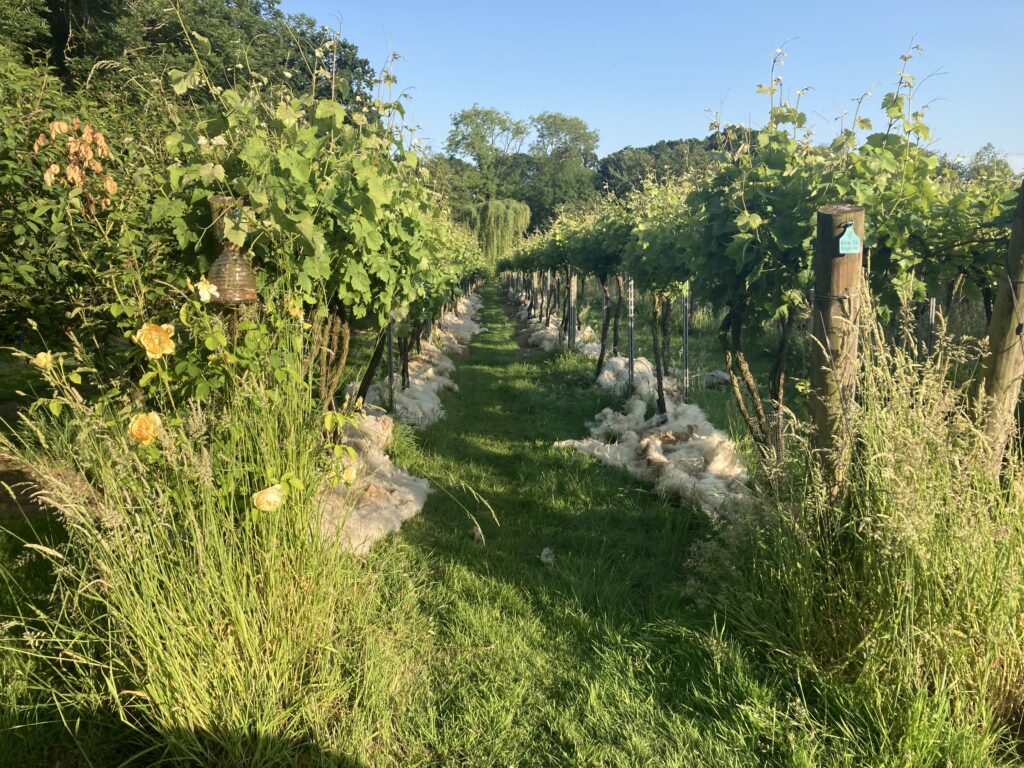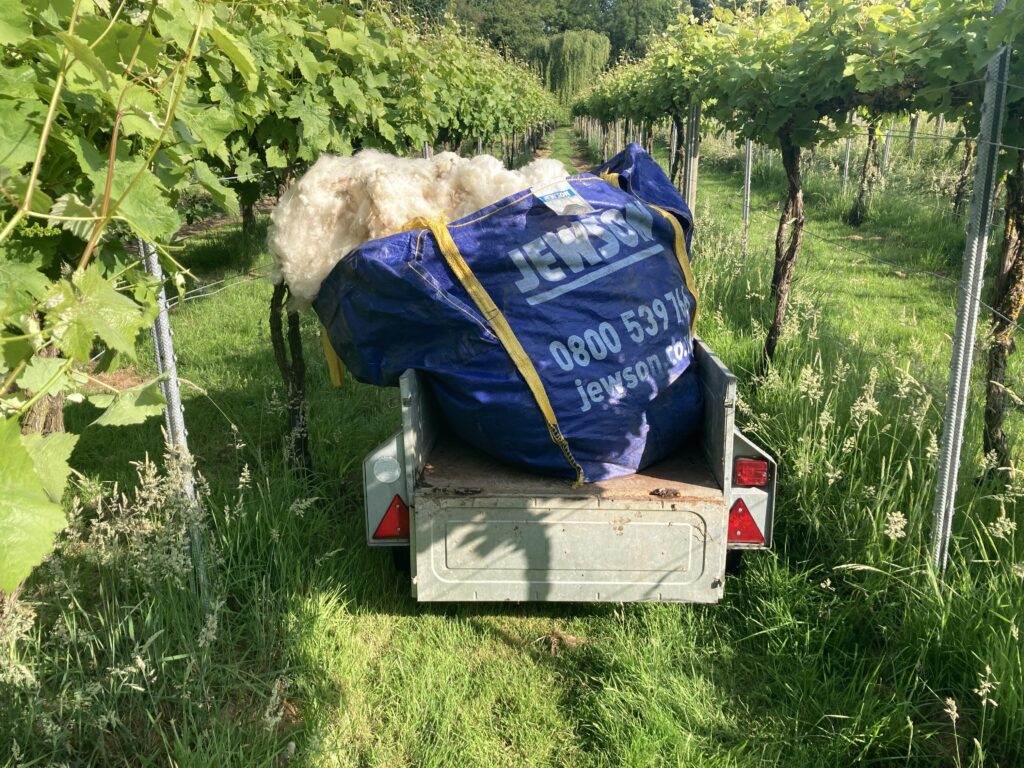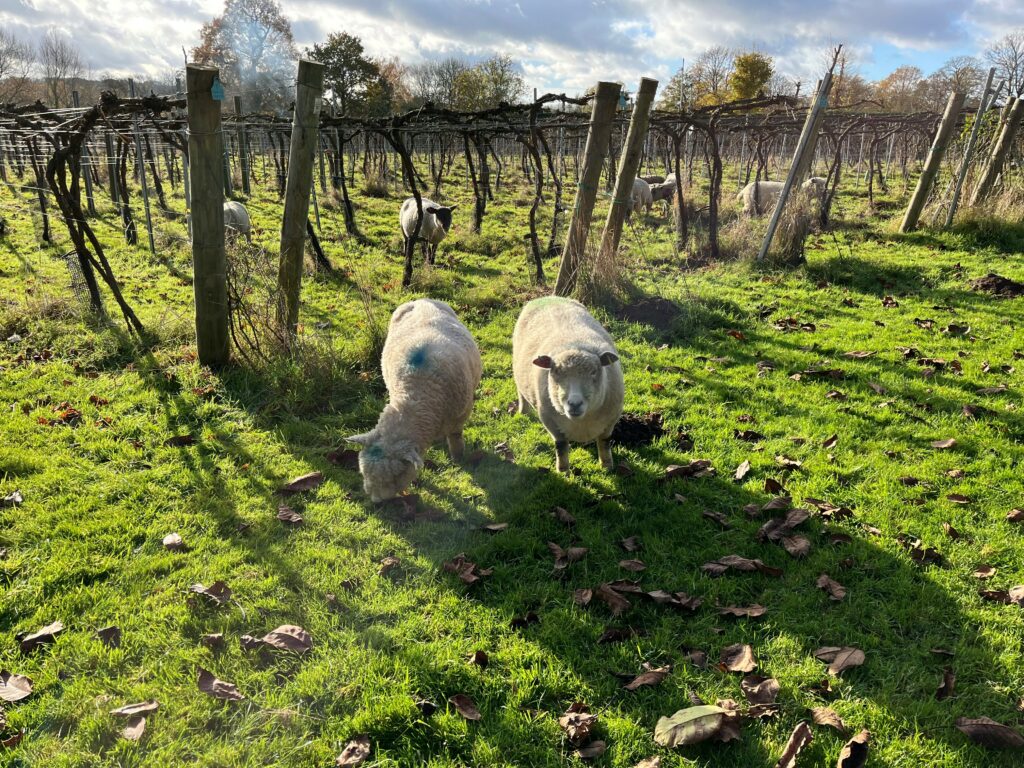We are always very keen to not only reduce our environmental impact at the vineyard, but we are always looking for ways to improve things. In addition to embracing the sustainability goals of WineGB and the tools from Regenerative Viticulture Foundation.
We were very pleased to see that our sustainability actions tied in with many of the actions in the Regenerative Viticulture Foundation’s tool kit. Much of the tool kit actions are provided by our use of organic matter to provide compost and the use of grass under the vines and between the rows. The grass ensures that we don’t lose soil through tilling, maintain moisture in the soil and provides stability in the soil temperatures. The grass also provides as a habitat that improves the biodiversity. whilst also storing carbon.
On a small scale we are also practicing Agroforestry with the various fruit trees that, as well as producing fruits, provide shade, improvements in soil quality and prevent soil erosion. All this and carbon collection too.
We are really proud of how our vineyard is working sustainably, , here is more detail on some of the sustainablitity activities we have initiated:
Traditional methods
As long-time advocates of avoiding waste and using traditional methods, the vineyard was planted by hand. We only hired a contractor with a tractor for the trellis work when exhaustion set in! Farmyard manure had previously been dug into the potential vine rows by hand, and the resulting weeds removed by garden fork or weed wand.
All our vines are maintained by hand and our grapes picked by hand.
No Insecticides
We maintain a “No Insecticide” policy to protect the resident colonies of bumble bees and ladybirds, which are an important part of the eco-climate. In order to control wasps/hornets which can kill bees and decimate grape crops, we use hanging bell jar traps. Bees can not achieve vertical flight and as such cannot enter.
The vines are fed with a foliar feed every two weeks when in leaf to promote strong cellular growth in the leaves which protects against fungal disease thus reducing our use of fungicides. A fungicide is only sprayed when necessary and under the guidance of an agronomist who specialises in grapevines.
To further reduce the need for the use of fungicides, four PIWI grape varieties were planted (Solaris, Orion, Regent and Rondo) which have disease resistance.
Finding alternatives
Compost Strategy
Adaptation to the compost strategy beckoned to prevent double handling. Now, wherever the wildlife, or vineyard pointers, have dug a hole we put kitchen and vegetable waste directly in the ground and leave the rest of the work to the worms!
A similar approach is taken to harvest and winery by products of grape stalks, pressed skins, pips and yeast deposits from the fermentation tanks which are used as a surface dressing on the vine rows.
Natures Lawn Mowers
This year we have ’employed’ a greener alternative to the petrol lawn mower for our end of year tidy up. In addition to keeping the grass under control, they are also proving fertilizer for the vineyard.




